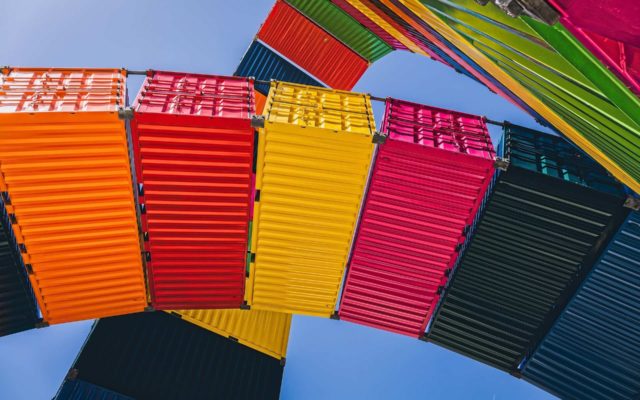Green supply chain
Minimizing environmental and social impact
The aim of the Green Supply Chain is to minimize the environmental impact of product, information and service flows throughout the supply chain. For us, this is a major challenge and a necessity, so that our recommendations integrate Green logistics into a balanced and rational approach. Our modeling tools take into account the carbon impacts of a complex supply chain (vectors and infrastructure). We also integrate into the Green Supply Chain approach compensatory measures that take advantage of logistics facilities.
The social impact of these developments is also taken into account, so that we can devise solutions to improve working conditions. Ergonomic workstations, interesting tasks, skills development… these are just a few examples of the improvements brought about by our reflections. In particular, we are seeking to limit execution tasks, so that logistics and supply chain teams can focus on steering, controlling and planning tasks.
In a global approach, our Supply Chain and Logistics consultants consider the balance between optimizing costs, maximizing service quality, social responsibility and sustainable development.
Applying our methods to transport networks
In the transport sector, we focus our recommendations on :
- shorter distances travelled
- massification of flows, helping to reduce the carbon footprint of transport
Our Supply Chain and Logistics consultants have particular expertise in logistics networks where carbon impact is a determining factor: urban logistics and long-distance multimodal sea-river-road transport.
Wherever possible, they advocate environmentally-friendly means of transport, while ensuring the best economic viability: CNG trucks, electric vehicles, three-wheeled bicycles in the city…
They have set up a calculation method to determine the level of external costs, such as greenhouse effects, air pollution and noise.
Green in the design of logistics resources and infrastructures
In our logistics studies, our Supply Chain and Logistics consultants recommend the materials used and favor High Environmental Quality buildings. They recommend the use of recyclable packaging or packaging that minimizes the quantity of materials used in its manufacture. Inside logistics platforms, they favor the use of electric handling equipment and other means to reduce employee fatigue.
Reverse logistics
Our expert supply chain and logistics consultants are involved in the circular economy, which is transforming logistics flows. They treat reverse logistics in the same integrated way as the main chain. Their recommendations in terms of logistics processes and capacities aim to fully integrate the effects of reverse logistics. They are also involved in making the most of unused logistics space by studying the possibility of installing electricity-generating facilities (solar panels and wind turbines). Finally, they are conducting studies into the implementation of logistics chains for waste recovery.
We operate in various sectors
Large groups, institutions, SMEs ; we have the resources to support companies of all sizes and in all circumstances (from long-term vision to crisis support)
Supply chain is becoming an integral part of industrial sites. Managing site supplies means working more closely with suppliers, and integrating factory workflows into the supply chain.
Our work focuses on issues relating to the organization and management of physical flows, as well as on forward-looking studies linked to territories. Our areas of expertise include urban logistics, modal shift and carbon footprint.



